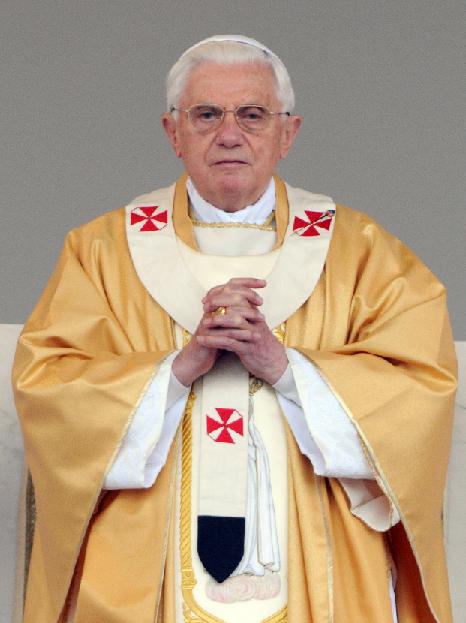After an almost eight year term as Pope, the legacy of Pope Benedict XVI is up for debate. There are some who believe his papacy will be seen as an extension of Pope John Paul II, whereas others believe that Pope Benedict will have a lasting and complex legacy.
“I think the legacy of Pope Benedict will be a mixed legacy…on the one hand, he has been a pope who is I believe a holy man, a prayerful man, a man of genuine faith. He has been a “scholar pope” in that he has demonstrated his strengths as a theologian and has written quite a bit during his papacy. And the fact that he has made this historic decision to step down from the papacy will also be part of his positive legacy,” said Sister Maureen Sullivan of the Theology Department.
Sister Maureen continued to discuss Benedict’s legacy, stating “…the history of and the ongoing horror of the clergy sexual abuse scandal will be attached to his papacy despite his efforts to address this problem. Far too many people have voiced their concern that insufficient accountability has been offered by some in the church for past failures in this regard.”
“Also, I think Benedict XVI will be viewed somewhat ambiguously for overseeing the disciplining of contemporary theologians while at the same time trying very hard to reconcile with the schismatic group known as the Lefebvrites – those who followed the Bishop Lefebvre who was excommunicated by John Paul II when consecrated four bishops in [the 1980s]. They reject most of the teachings of Vatican II, including the teaching on religious freedom and ecumenism.”
There is much speculation over who the next pope will be, and one of the biggest topics of conversation is whether or not a pope will be selected from outside of Europe, since the majority of the Catholic population resides outside of Europe.
“Considering the growth of the Church in Africa and Latin America, it would not surprise me to see the new pope come from one of those areas. As a Brazilian, I know how excited everyone in the country would be if the next pope came from there,” said Professor Sylvia Shannon of the History Department.
“There has been a great deal of talk about the next pope coming from somewhere outside of Europe. I do believe there is a possibility for such a decision. But given the fact that 67 of the cardinals going into this conclave were appointed by Benedict XVI and all the others appointed by John Paul II, I think it is safe to assume that – if they choose someone from within the cardinals (as is usually the case, e.g, someone from within the conclave), we will have a pope who shares the theological worldview of our current pope,” said Sister Maureen.
Sophomore CJ Mckay commented “the next Pope should be similar to Pope John Paul II because he was very influential and known for reaching out to all Christians and helped out those who were less fortunate.”
Whoever is elected to the Papacy will have several issues to address, which range from abortion and gay marriage to connecting with Catholics from around the world.
“The most important issue for the new Pope to address will be the lack of faith in the developed world, particularly among the youth,” said senior Chris Harrington of the issues of the Papacy.
Sophomore Communication major Megan Cunningham stated “I hope to see the new papacy show greater lenience and adapt more to popular culture’s acceptance of gay marriage as this concerns not only the United States but the entire world.”
McKay stated “the biggest issues today within the church are the sex scandal with the cardinal, the reformation within Vatican II and how there are less clergy within the church than there were years ago.”
Sister Maureen lists several potential concerns for the new Pope “the ongoing distrust of the members in our church over the clergy abuse scandal; I fear that the official church leaders have lost a good deal of credibility as moral agents in the minds of many people [and] this trust needs to be regained. Other concerns include the empty pews for Mass on Sunday, the empty confessionals on Saturday; the people of God have fallen away from the sacramental life of the church and I think this is a serious challenge; the sacramental life of the church will suffer if we do not address the need for more ordained clergy.”


